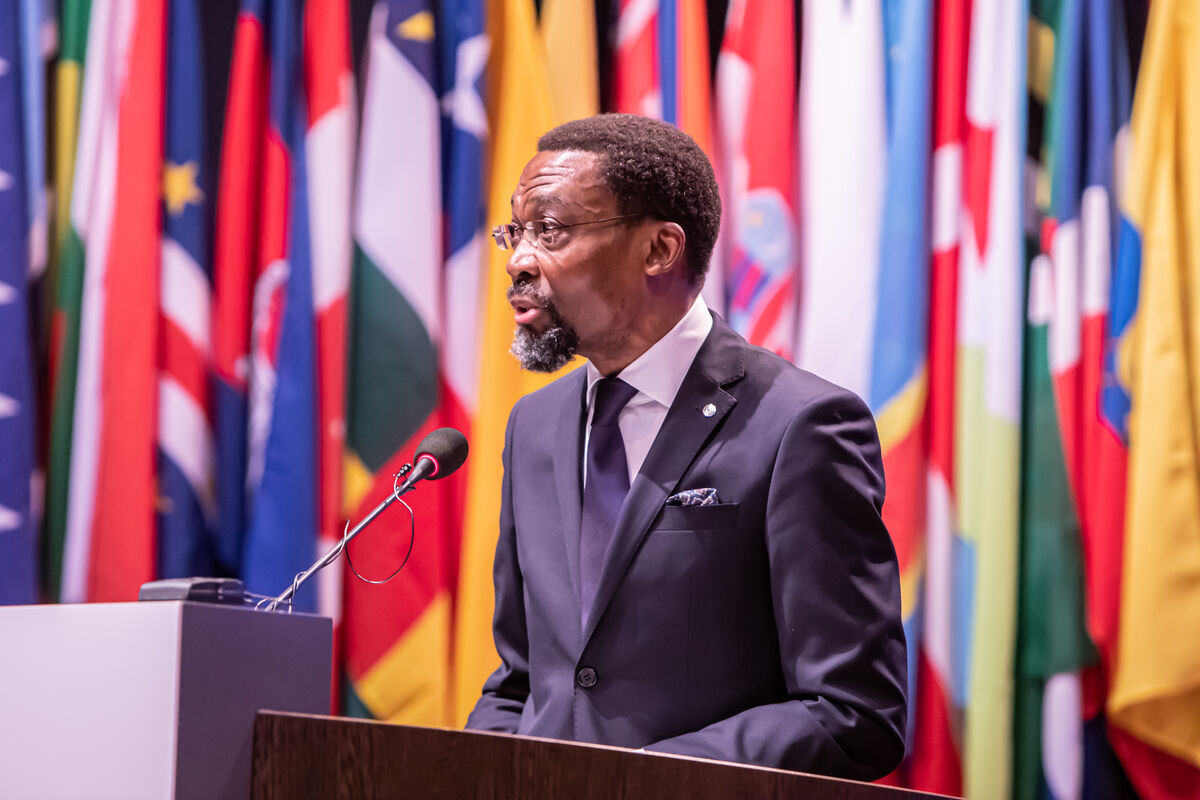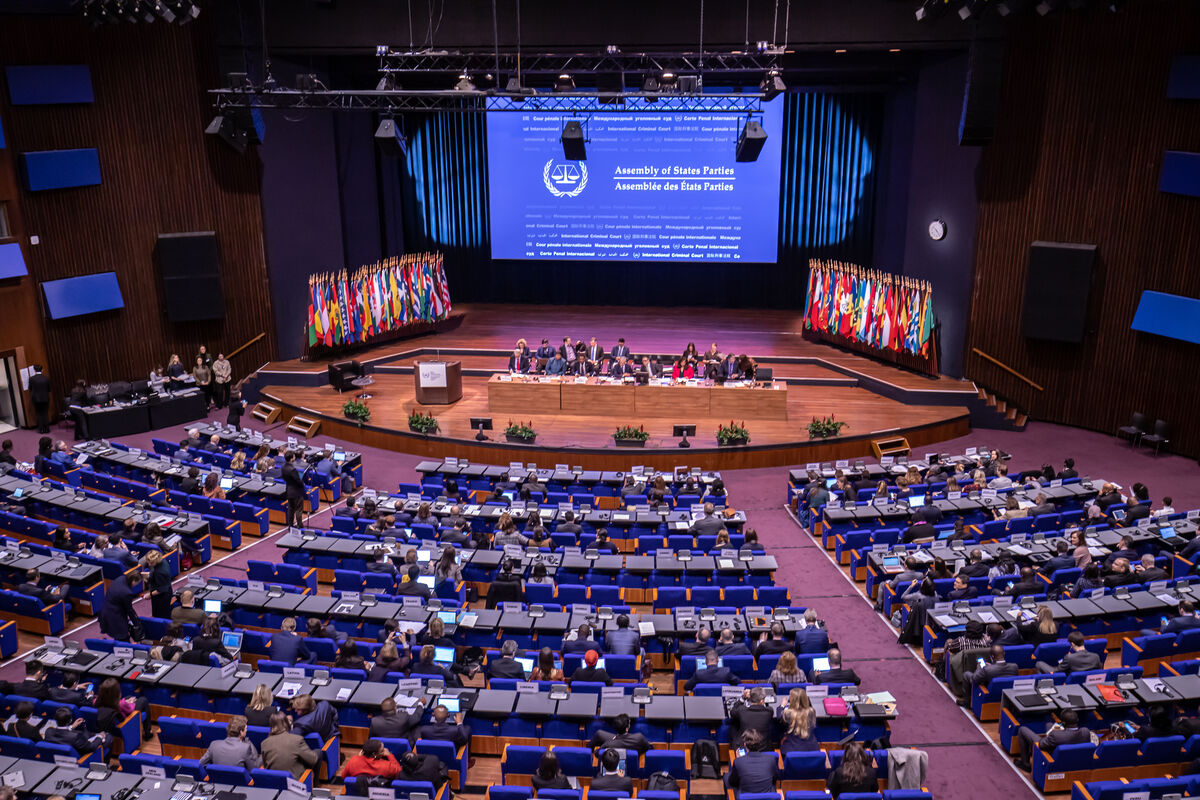
Chile Eboe-Osuji was elected President of the International Criminal Court (ICC) in 2018.
Source: MikeChappazo, Shutterstock.com
The International Criminal Court (ICC), established in 2002, is the first court of its kind. It is a permanent international court. This was the first time a court had the task of trying individuals for the most serious crimes of international concern. The ICC can rule on cases involving 4 specific types of crime:
-
Genocide
-
Crimes against humanity
-
War crimes
-
Crimes of aggression
-
A genocide is the deliberate and organized extermination of an ethnic, religious or social group. It is a crime against humanity under international law.
-
A crime against humanity is a deliberate violation of the fundamental rights of an individual or a group of individuals for political, philosophical, racial or religious reasons. Acts such as murder, extermination, enslavement, deportation and torture are examples of crimes against humanity.
-
A war crime is a violation of the laws of war committed against civilians or adversaries. Looting, destruction, rape, execution of civilians or hostages and forced labour are examples of war crimes and are considered serious breaches of the Geneva Conventions.
-
A crime of aggression is an armed attack by one state against another. This attack by land, air or sea violates the sovereignty, integrity or independence of the country under attack, whether or not there is a declaration of war.
Starting in 1933, Germany introduced discriminatory laws against its Jewish citizens. They were no longer allowed to have jobs in the civil service and were forced to sell their property at low prices to Germans and live in poor neighbourhoods without running water. They were condemned to a life of misery. In 1939, Jewish people were forced out of Germany to concentration camps, where they had to do hard labour in camps or factories, all the while malnourished and abused. By 1942, the labour camps were overflowing with Jewish prisoners. This led the Germans to set up extermination camps where imprisoned Jewish people were killed with poisonous gas in the infamous gas chambers.
This tragedy is certainly considered genocide, because the actions of one group (the German people) were aimed at destroying a specific religious group (the Jewish people) and subjecting this same group to life-threatening conditions.
To find out more, see the concept sheet on World War II.

Source: MikeChappazo, Shutterstock.com
The ICC only rules on specific crimes that meet 3 criteria:
-
Since the ICC was inaugurated on July 1, 2002, it cannot try a crime that was committed before that date. For example, the Rwandan genocide of 1994 was tried by the International Criminal Tribunals (ICT).
-
The ICC can only judge a case when the state where the crimes were committed is unwilling or unable to do so.
-
The ICC can only exercise legal jurisdiction over states that have signed the Rome Statute of the International Criminal Court. This means that only signatory states can bring to trial criminals who reside in their territory or have committed a crime in their territory. However, there is one exception. Although the ICC is independent of the United Nations (UN), the UN Security Council can authorize it to try a state that commits serious violations even if it has not ratified the agreement.
The UN Security Council maintains international peace and security. When the Council determined that the situation in Sudan threatened international peace and security, it referred the case to the International Criminal Court.
Even though Sudan had not signed the Rome Statute, the ICC was able to exercise its jurisdiction over the war crimes, crimes against humanity and genocide committed in Sudan after July 1, 2002. The ICC issued 2 arrest warrants for former Sudanese President Omar al-Bashir. Unfortunately, Sudanese authorities were not very cooperative, which prolonged the legal proceedings. It took 10 years for the former president to appear before the ICC.
Numerous states, including Canada, signed the Rome Statute of the ICC. In 2025, the United States and Russia signed the statute but have not ratified it. When a signatory state ratifies a treaty, agreement or statute, it becomes legally obligated to implement the necessary measures to comply with the terms of the treaty. The United States and Russia have yet to ratify the Rome Statute.
Several states, such as China and Cuba, have not signed the Rome Statute. Several states refuse to sign the Statute because they do not believe that the ICC respects their sovereignty. These states want to judge crimes committed on their territory themselves. Other states are simply afraid that their leaders will be the target of prosecution.
The non-ratification of the Rome Statute limits the ICC’s jurisdiction. It is unable to judge all crimes committed because it is not recognized by all states. The UN Security Council may give it power in certain cases, but these cases are very rare.
Click here to see the cases currently under investigation by the International Criminal Court.
Sovereignty is the absolute power of a state to govern itself by making its own laws and enforcing them within its territory. A sovereign state is independent, meaning that it cannot be controlled by any other state or institution.
To better understand what sovereignty is, you can watch the video Sovereignty and Interference.